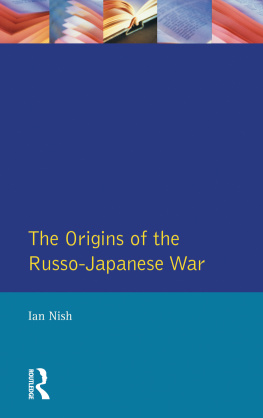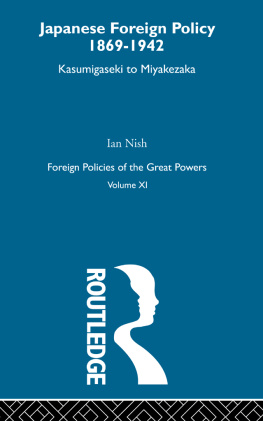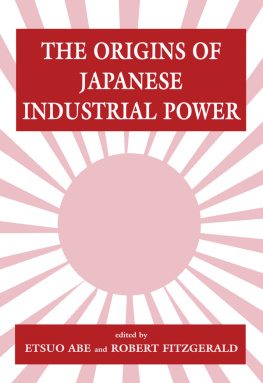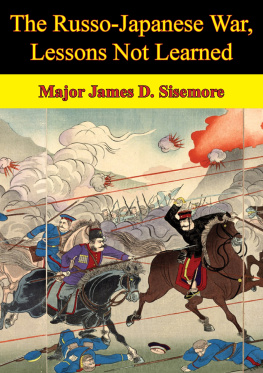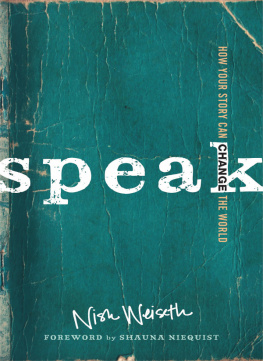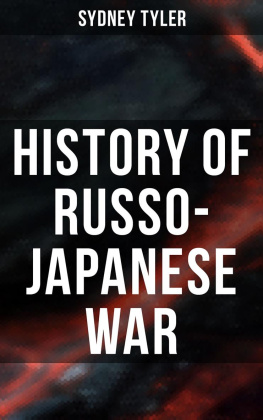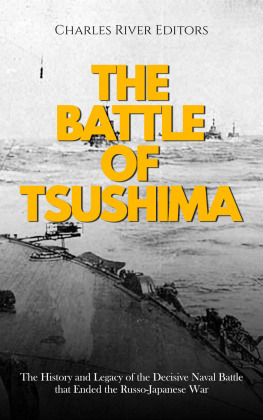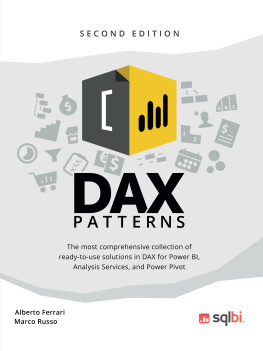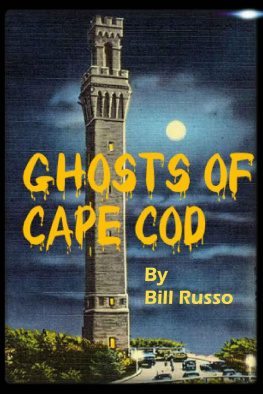Ian Nish - The Origins of the Russo-Japanese War
Here you can read online Ian Nish - The Origins of the Russo-Japanese War full text of the book (entire story) in english for free. Download pdf and epub, get meaning, cover and reviews about this ebook. year: 2014, publisher: Routledge, genre: Science. Description of the work, (preface) as well as reviews are available. Best literature library LitArk.com created for fans of good reading and offers a wide selection of genres:
Romance novel
Science fiction
Adventure
Detective
Science
History
Home and family
Prose
Art
Politics
Computer
Non-fiction
Religion
Business
Children
Humor
Choose a favorite category and find really read worthwhile books. Enjoy immersion in the world of imagination, feel the emotions of the characters or learn something new for yourself, make an fascinating discovery.
The Origins of the Russo-Japanese War: summary, description and annotation
We offer to read an annotation, description, summary or preface (depends on what the author of the book "The Origins of the Russo-Japanese War" wrote himself). If you haven't found the necessary information about the book — write in the comments, we will try to find it.
Ian Nish: author's other books
Who wrote The Origins of the Russo-Japanese War? Find out the surname, the name of the author of the book and a list of all author's works by series.
The Origins of the Russo-Japanese War — read online for free the complete book (whole text) full work
Below is the text of the book, divided by pages. System saving the place of the last page read, allows you to conveniently read the book "The Origins of the Russo-Japanese War" online for free, without having to search again every time where you left off. Put a bookmark, and you can go to the page where you finished reading at any time.
Font size:
Interval:
Bookmark:

Ian Nish

First published 1985 by Addison Wesley Longman Limited
Fifth impression 1996
Sixth impression 1998
Published 2014 by Routledge
2 Park Square, Milton Park, Abingdon, Oxon OX14 4RN
711 Third Avenue, New York, NY 10017, USA
Routledge is an imprint of the Taylor & Francis Group, an informa business
Copyright 1985, Taylor & Francis.
All rights reserved. No part of this book may be reprinted or reproduced or utilised in any form or by any electronic, mechanical, or other means, now known or hereafter invented, including photocopying and recording, or in any information storage or retrieval system, without permission in writing from the publishers.
Notices
Knowledge and best practice in this field are constantly changing. As new research and experience broaden our understanding, changes in research methods, professional practices, or medical treatment may become necessary.
Practitioners and researchers must always rely on their own experience and knowledge in evaluating and using any information, methods, compounds, or experiments described herein. In using such information or methods they should be mindful of their own safety and the safety of others, including parties for whom they have a professional responsibility.
To the fullest extent of the law, neither the Publisher nor the authors, contributors, or editors, assume any liability for any injury and/or damage to persons or property as a matter of products liability, negligence or otherwise, or from any use or operation of any methods, products, instructions, or ideas contained in the material herein.
ISBN 13: 978-0-582-49114-4 (pbk)
BRITISH LIBRARY CATALOGUING IN PUBLICATION DATA
Nish, Ian
The origins of the Russo-Japanese war.
(Origins of modern wars)
1. Russo-Japanese War, 1904-1905 Causes
I. Title II. Series
952.03' 1 DS517
LIBRARY OF CONGRESS CATALOGING IN PUBLICATION DATA
Nish, Ian
Hill. The origins of the Russo-Japanese war.
(Origins of modern wars)
Bibliography: p.
Includes index.
1. Russo-Japanese War, 1904-1905 Causes. 2. Japan
Foreign relations Soviet Union. 3. Soviet Union Foreign
relations Japan. I. Title. II. Series.
DS517. N57 1985 952.03' 1 84-21296
ISBN 0-582-49114-2 (pbk.)
Set in 10/11pt AM Compset Times
THE ORIGINS OF THE RUSSO-JAPANESE WAR
ORIGINS OF MODERN WARS
General editor: Harry Hearder
Titles already published:
THE ORIGINS OF THE FRENCH REVOLUTIONARY WARS
T.C.W. Blanning
THE ORIGINS OF THE CRIMEAN WAR
David M. Goldfrank
THE ORIGINS OF THE ITALIAN WARS OF INDEPENDENCE
Frank J. Coppa
THE ORIGINS OF THE AMERICAN CIVIL WAR
Brian Holden Reid
THE ORIGINS OF THE WARS OF GERMAN UNIFICATION
William Carr
THE ORIGINS OF THE SOUTH AFRICAN WAR, 1899-1902
Iain R. Smith
THE ORIGINS OF THE RUSSO-JAPANESE WAR
Ian Nish
THE ORIGINS OF THE FIRST WORLD WAR
(Second Edition)
James Joll
THE ORIGINS OF THE RUSSIAN CIVIL WAR
Geoffrey Swain
THE ORIGINS OF THE SECOND WORLD WAR IN EUROPE
(Second Edition)
P. M. H. Bell
THE ORIGINS OF THE SECOND WORLD WAR IN ASIA AND THE PACIFIC
Akira Iriye
THE ORIGINS OF THE GREEK CIVIL WAR
David H. Close
THE ORIGINS OF THE KOREAN WAR
(Second Edition)
Peter Lowe
THE ORIGINS OF THE VIETNAM WAR
Anthony Short
THE ORIGINS OF THE ARAB-ISRAELI WARS
(Second Edition)
Ritchie Ovendale
THE ORIGINS OF THE PRESENT TROUBLES IN NORTHERN IRELAND
Caroline Kennedy-Pipe
The third volume to be published in this series deals with the origins of a war very different in scope and scale from that of 1914-18 with which Professor James Joll's volume dealt, and very different in character from the Arab-Israeli conflicts with which Dr Ritchie Ovendale's volume deals. The search for common factors in the origins of the three conflicts is perhaps a vain and unrewarding task, yet certain general points of interpretation emerge.
James Joll noted the inadequacies of intelligence and imagination of individual men in positions of supreme authority in 1914, and how those inadequacies helped to lead to the catastrophe. In the present volume Professor Nish shows how Tsar Nicholas II, essentially a man of peace, and sometimes a shrewd observer of what was happening, was for a large part of the time of the crisis on holiday or unobtainable, and was anyhow a weak man who could not halt the impending disaster. There is an irony in the fact that essentially pacific men have often been in authority at the outbreak of wars Lord Aberdeen in 1854 (a war with which Dr Agatha Ramm will be dealing in the series), Asquith in 1914, Neville Chamberlain in 1939 (a war with which Mr Philip Bell will be dealing in the series). The limitations of Nicholas II contributed in 1904 and 1914 to tragedy on a scale which he certainly did not intend or envisage.
Another question which must be asked about the origins of wars is that of the role of simple miscalculation the miscalculation regarding the ease with which the war can be won. Ian Nish shows that Russian ministers could not believe that their vast and powerful empire could possibly be defeated by a small upstart Asian nation. The Japanese, ironically in view of their overwhelming victory in the war, were far more cautious. But they were, in Professor Nish's words, 'cool and calculating'. Russian confidence in victory was a proud but somewhat nebulous one; Japanese confidence was less extravagant, but more firmly based on military and naval facts.
That the Arab-Israeli wars with which Ritchie Ovendale dealt in his volume in this series did not lead to a direct Russo-American confrontation was partly due to the very complexity of the situation in the Middle East. Fortunately the Russians and the Americans have never been quite sure whom to back there. Even the basic sympathy which Washington has felt for Israel has sometimes wavered. But the problems dividing Russia and Japan in 1904 were also complex, and the complexity on that occasion did not permit successful bargaining, and so did not prevent war. Yet there was certainly more room for bargaining and negotiating than some of the politicians and diplomats on both sides had the wit to realize. But Professor Nish finds the statement that the war was 'unnecessary' too simplistic. 'If the two sides could not find an agreeable basis for compromise,' he writes, 'it is hard to see how the war can be described as "preventible".' It came to be regarded as necessary in the eyes of both governments, but perhaps not equally necessary in the eyes of all politicians and diplomats concerned. Ian Nish shows very clearly that the holding of a significant post by a certain individual at a particular moment in a crisis may well affect the way the negotiations develop. The foolish belief that the will of individual diplomats or officials can have no influence on developments - that they are all in some mystical way caught up in an inevitable process - is belied by Professor Nish's account. In a classic statement in the early eighteenth century Giambattista Vico pointed out that while it may be true that God made nature, it is certainly true that Man made history: humanity cannot escape that responsibility. Someone some people - were responsible for wars, and more often than not those people were not all on the same side.
Another general question which can be asked about most wars is whether public opinion was more eager for war than the government, or vice versa. Ian Nish suggests that in 1904 the Japanese people were more eager for war than their government, while the Russian public was less interested in the Far East than were some of their ministers. But Japan was a constitutional state while Russia was still a monolithic autocracy, so that 'public opinion' means something rather different in the two countries. Before a war there is usually a peace party and a war party doves and hawks. As soon as the war starts the doves appear discredited, but in a defeated nation the hawks in their turn are discredited. Professor Nish tells us, in one of his brilliantly lucid concluding points, that in 1904 'there was in both countries an expansionist group tussling with a more moderate one which was equally determined to pursue national interests but in ways which would avoid confrontation or offense to other powers. The attainment of rational solutions was often lost because of the factional infighting.'
Font size:
Interval:
Bookmark:
Similar books «The Origins of the Russo-Japanese War»
Look at similar books to The Origins of the Russo-Japanese War. We have selected literature similar in name and meaning in the hope of providing readers with more options to find new, interesting, not yet read works.
Discussion, reviews of the book The Origins of the Russo-Japanese War and just readers' own opinions. Leave your comments, write what you think about the work, its meaning or the main characters. Specify what exactly you liked and what you didn't like, and why you think so.

